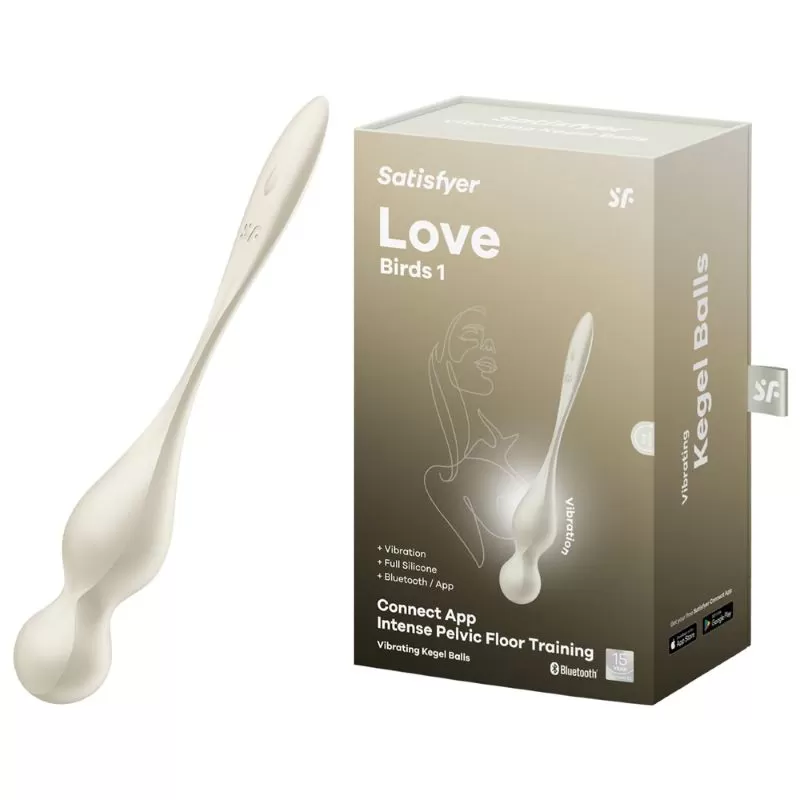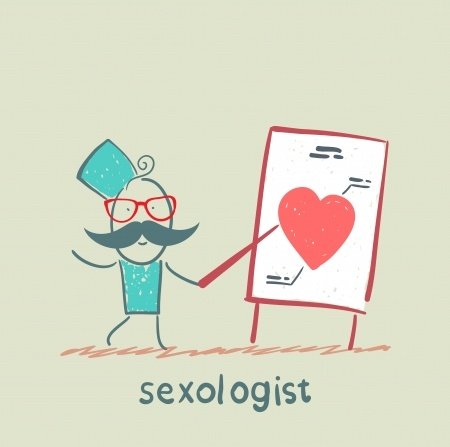What is a Sexologist? | Leigh Norén

5 minute read
If you’re experiencing sexual difficulties, you may be wondering where, or who, to turn to. With so many options out there ranging from sex therapists to sex coaches, and even sexologists – it can be confusing.
As a trained sexuality professional myself (with all three of the above titles) I’m breaking down the answer to the question in this article; “what is a sexologist”. And giving you some ideas of what professional might be the right one for you.
Because whether you have erectile dysfunction, a sexual desire disorder, or simply want to spice things up in the bedroom – it’s important you get the right help.
What is a Sexologist?
A sexologist is an expert in the field of human sexuality. They have extensive knowledge on everything from various sexual practices and orientations, to sexual difficulties, the human psyche, and genital anatomy.
What Does a Sexologist do?
While it would be easy to assume sexologists help people who want better sex lives – the title is far more varying than that.
- Some sexologists mainly focus on academic research and further the field of Sexology.
- Others work 1:1 or in group settings with people to help them overcome sexual (and sometimes) relationship challenges; be it in private practice, at a hospital, or via online services.
- Som offer workshops, online courses, and digital products. All created to help you overcome sexual difficulties.
Suffice it to say, the work of a sexologist is varied. But it’s always based on sexual science and what research says about human sexuality.
What’s the Difference Between a Clinical Sexologist and a Sexologist?
Sexologists who work with clients or offer digital products are referred to as clinical sexologists.
This means they apply their knowledge of Sexology to your problems and help you get past them with a variety of tools.
In general, clinical sexologists work with clients in a shorter time frame. Some examples of issues they can help you deal with are:
- Vestibulodynia (pain during sex)
- Premature ejaculation (orgasming sooner than you’d like)
- Erectile dysfunction (finding it hard to get and/or stay hard)
- Low or non-existent libido
- Mismatched or different libidos in a romantic relationship
- Questions around gender identity
- Questions about sexual orientation
- Exploring non-monogamy
A non-clinical sexologist doesn’t work with clients, rather they focus their work on educating and research.
Other Sexologists
There are also other sexolgists who are niched in special areas, such as tantra certified sexologists and somatic certified sexologists. A tantra sexologist has special knowledge in the area of tantric healing, whereas a somatic sexologist has training in doing body work.
For instance, somatic approaches are often more hands-on and address your physiology and the interaction between the psyche and physiology.
Whether you see a tantric sexologist, clinical sexologist, or somatic sexologist – none of these professions blur the lines between what is professional conduct and what is private conduct.
Have you grabbed your free resource yet?

My free 14-page resource, Intimate Q&A, gives you access to a great couples exercise that helps you keep your emotional and sexual relationship alive.
Download the resource and you also get instant get access to my, deeply appreciated, weekly newsletter. You can unsubscribe at any time.
What’s the Difference Between a Sexologist and a Sex Therapist?
While sexologists (both clinical and otherwise) can also be sex therapists, there are some meaningful differences between the two professions.
For starters, sex therapists often need to be licensed to practice therapy. Sexologists don’t.
However, the question of licensure does differ between countries and can for instance depend on the level of psychotherapy training of the specific therapist.
In general though, a sex therapist will be licensed, whereas a sexologist will not be. This doesn’t mean a sexologist doesn’t still have to abide by a set of rules and ethics, though.
As a clinical sexologist is helping you with some of the utmost sensitive issues out there, those with professional training will have a code of ethics they practice.
Another key difference is that of education. While sex therapists may hold an advanced degree such as a Master or Ph.D – it’s more common for a sexologist to have these qualifications, than a therapist.
Finally, sexologists tend to work more short-term with clients, while sex therapists tend to spend longer with their clients.
This is because sex therapy often entails going deeper – possibly addressing deep-seated issues from your past that are affecting your present. This may be things like how your caregivers taught you how to deal (or not deal) with your emotions, other concurrent mental health struggles such as depression or anxiety, experiences of sexual trauma, or even the way you relate to people in general.
You can learn more about the work of a sex therapist in this post on what is a sex therapist and how can they help me?
Can Sex Coaches be Sexologists?
Sex coaches, just like sex therapists, can also be sexologists. However, sex coaching is generally speaking not a university degree, meaning most sex coaches haven’t studied Sexology at an institute of higher learning. This is compared to both sex therapists and sexologists who usually have some kind of formal university-level training in Sexology.
Seeking Help from a Sexologist
Seeking help for sex-related issues is a highly personal decision. A lot of times we wait for “the perfect time” (that never seems to come). This is because most of us are nervous and afraid of talking about sex with a professional.
And who can blame you?
Sex is still a taboo subject in most cultures – despite it seemingly being everywhere in the media.
For a lot of us with sexual issues, it’s even more taboo and hard to discuss. Because alongside the sexual difficulty itself, are all sorts of emotions and thoughts about ourselves.
Sometimes we feel broken because we no longer desire our partner sexually. Other times we feel like less of a “real man” if we cannot go for more than a few minutes before we orgasm.
If the above sounds like you, know you’re not alone. And whether you see a trained sex coach, sex therapist, or clinical sexologist – please know they have been taught how to help put you at ease and never come from a place of judgment.
What to Consider When Getting Professional Help
As sexologists generally aren’t licensed, it’s important to make sure the sexologist you seek help from has professional merits that will ensure quality treatment. One of the most important factors is that the sexologist you see has some kind of formal education in Sexology.
This could include some kind of continuing education in Sexology via a university or accredited institution, or an advanced degree in Sexology such as a Master or Ph.D.
If you’re looking to get started right away with a sexologist, sex therapist, and coach, check out my services to see if we’re a good fit. I specialize in low libido and mismatched desire, as well as anxiety and shame surrounding sex.


 Anal Beads
Anal Beads Anal Vibrators
Anal Vibrators Butt Plugs
Butt Plugs Prostate Massagers
Prostate Massagers
 Alien Dildos
Alien Dildos Realistic Dildos
Realistic Dildos
 Kegel Exercisers & Balls
Kegel Exercisers & Balls Classic Vibrating Eggs
Classic Vibrating Eggs Remote Vibrating Eggs
Remote Vibrating Eggs Vibrating Bullets
Vibrating Bullets
 Bullet Vibrators
Bullet Vibrators Classic Vibrators
Classic Vibrators Clitoral Vibrators
Clitoral Vibrators G-Spot Vibrators
G-Spot Vibrators Massage Wand Vibrators
Massage Wand Vibrators Rabbit Vibrators
Rabbit Vibrators Remote Vibrators
Remote Vibrators
 Pocket Stroker & Pussy Masturbators
Pocket Stroker & Pussy Masturbators Vibrating Masturbators
Vibrating Masturbators
 Cock Rings
Cock Rings Penis Pumps
Penis Pumps
 Wearable Vibrators
Wearable Vibrators Blindfolds, Masks & Gags
Blindfolds, Masks & Gags Bondage Kits
Bondage Kits Bondage Wear & Fetish Clothing
Bondage Wear & Fetish Clothing Restraints & Handcuffs
Restraints & Handcuffs Sex Swings
Sex Swings Ticklers, Paddles & Whips
Ticklers, Paddles & Whips









